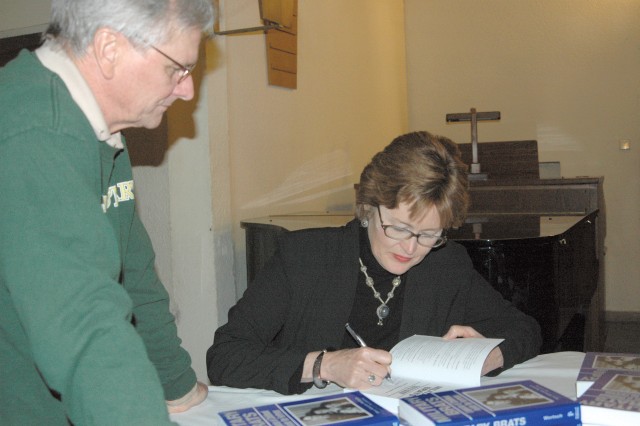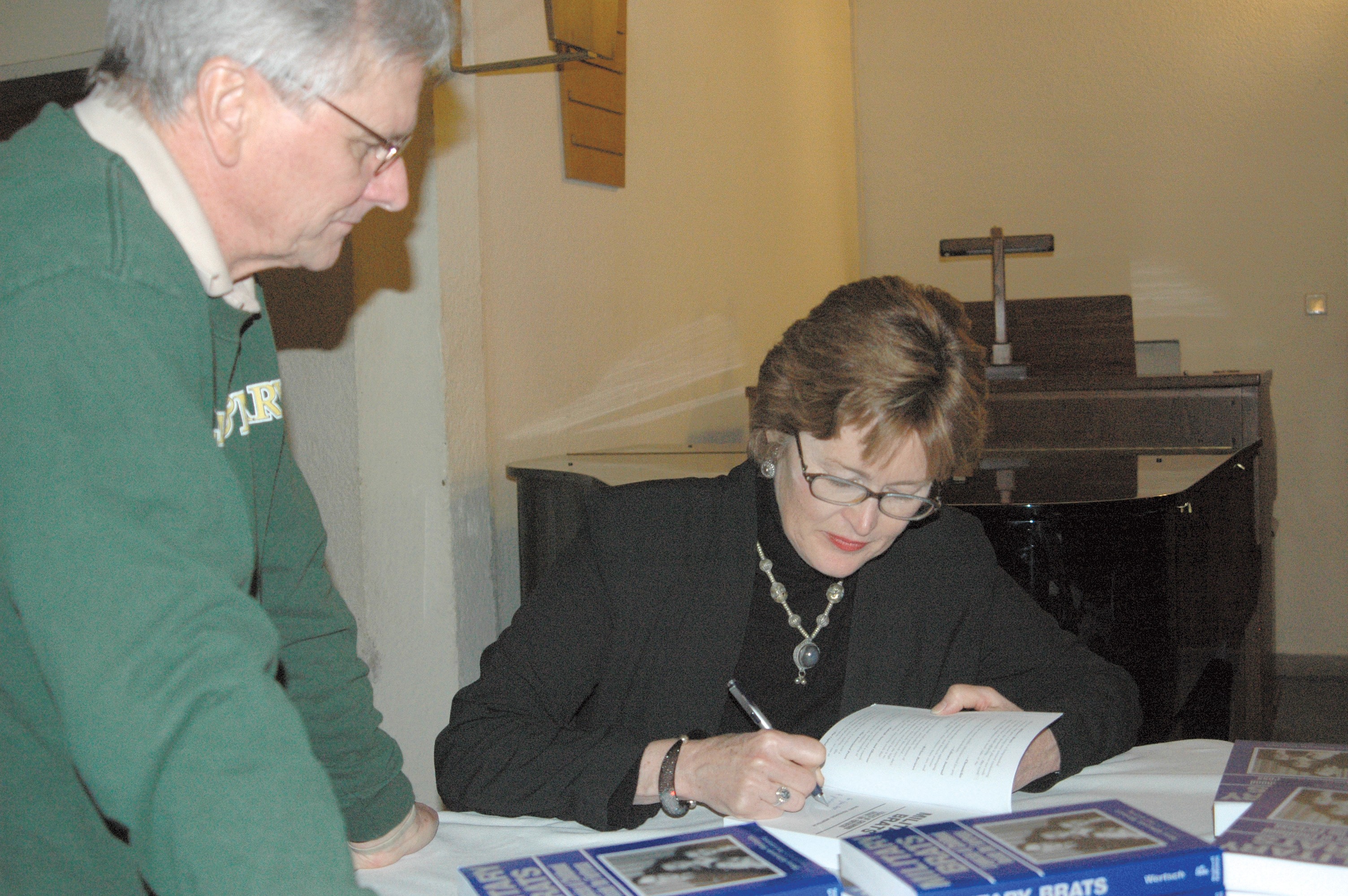HEIDELBERG, Germany -- Brat is not a derogatory term when talking about children of service members.
This is part of the message author Mary Edwards Wertsch brought with her when she visited the U.S. Army Garrison Baden-WAfA1/4rttemberg communities to talk about her research and her book, "Military Brats: Legacies of Childhood Inside the Fortress."
Wertsch, an adult military brat and the daughter of a career Army infantryman who lived in three countries and 20 different houses as a child, was the guest of the USAG Baden-WAfA1/4rttemberg Chaplain's Office for a week called "The Good and the Grief."
From March 17-19, Wertsch traveled to the Benjamin Franklin Village Chapel in Mannheim, Patrick Henry Village Chapel and Mark Twain Village Chapel in Heidelberg, and the Landstuhl Library in Kaiserslautern.
She presented information for parents and those who work with military children - information she said is invaluable.
"Because military children do not grow up with the same sense of hometown or roots that many other civilian people do," she said, "here is the fact of the matter - everybody needs to know where they are from. I learned that it is very important to understand that we are from this military culture. It shapes us, and you don't stop being a military brat at age 18 - it affects you your whole life through."
Wertsch discussed ways to strengthen resiliency in military children with those in attendance at an evening session at MTV Chapel March 18. She pointed out ways to use story sharing, poem writing, blues music and an activity she created called 'operation footlocker.'
The activity was launched in 1996 to help develop cultural identity and connection among adults who grew up in the military, and three footlockers now crisscross the United States filled with contributed 'memories' from adult military brats.
Wertsch said she hopes parents and others who learn about her research simply get a better understanding of the military culture.
"I hope they take away that the military is a culture for the children raised within it, the same as any culture on the face of the planet," she said. "It is a shaping culture. For parents to understand their own children, they need to understand the military as the root culture for their children."
Wertsch said as part of the research for her book, first published in 1991, she interviewed 80 adult military brats.
Through the research, she said the main strength of those she interviewed was the values all those interviewed shared: Integrity, honesty, service, loyalty and the tendency to not be racist, for example.
Dr. Becky Powell, director of religious education for USAG Baden-WAfA1/4rttemberg, helped organize the visit by Wertsch, whom she met through reading Wertsch's book while conducting research for her dissertation.
"Mary wrote the book, really and truly, and anything that you're going to read about military families is going to cite back to her," she said. "Hers is the first broad examination, in a systematic research way, of this population."
Powell said Wertsch not only helped her professionally but personally as well.
"Mary has become a valued colleague and friend," she said. "When we had a time when we had some significant transition issues for my daughter, Mary was one of the people who sustained us. She gave us practical advice."
Powell agreed that it is important for military families to think about the culture they are living in.
"I hope they come away with a sense that there is an identity, there is a pride that children and adults can have from their lives here, and it is a very good and honorable thing," she said.
(Editor's Note: Kristen Marquez writes for the USAG Baden-Wuerttemberg newspaper, the Herald Post.)


Social Sharing